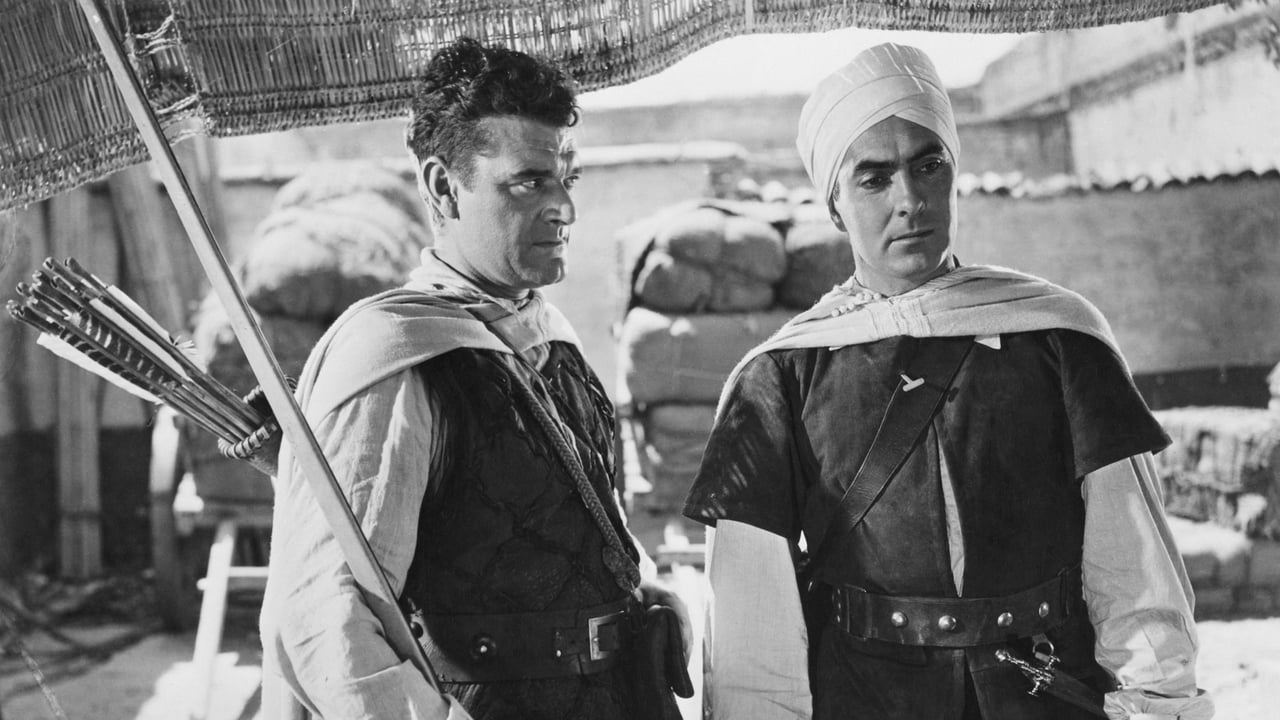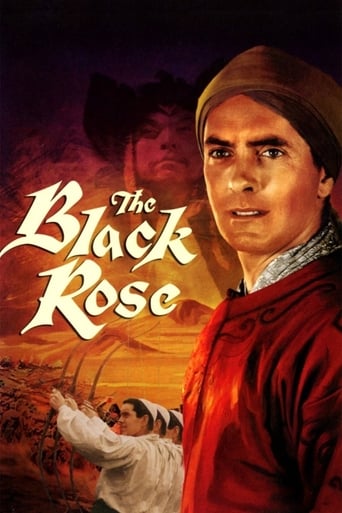



Brilliant and touching
an ambitious but ultimately ineffective debut endeavor.
View MoreThe plot isn't so bad, but the pace of storytelling is too slow which makes people bored. Certain moments are so obvious and unnecessary for the main plot. I would've fast-forwarded those moments if it was an online streaming. The ending looks like implying a sequel, not sure if this movie will get one
View MoreIt really made me laugh, but for some moments I was tearing up because I could relate so much.
View MoreI have always loved this film for its fairy tale quality. Sure Power is mature to play a student--IMO, the screenwriters, producers and director are to blame for not coming up with a script adjustment--but he is a highly romantic leading man, who is wonderful to look at and fully invested in the action. He is marvelous as well at connecting throughout with all the other actors as he always does. It should be noted that Jack Hawkins is too old for his role, too. In the book and in the film the character of Tris is also a student and contemporary of Power's character. But what of it? He's great and he and Power have good "buddy film" chemistry. In addition to the two wonderful leads,The Black Rose has a nice cast of supporting actors, an attractive score, and lavish sets and costumes to illustrate this purely fanciful story. I personally like Orson Wells only in minor roles such as this one, since for my taste he tends to overact and chew the scenery. Cecile Aubrey, the female lead is unusual and plays it rather naive, but it fits well with her odd character. I recommend The Black Rose to anyone who likes old time movies that transport you to far away places and times.
View MoreWho cares and who knows about the Black Rose? I don't.Tyrone Power comes home from Oxford. It has been 200 years since the Norman invasion of England and Power leaves the school when his father dies. He is very much anti-Norman and comes home to a hostile Norman widowed stepmother. He is left a pair of boots and his service to the Norman king is promised. Michael Rennie co-stars as the understanding Norman king who Power rejects, gets gold coming to him and goes off to the near east with companion Jack Hawkins to seek adventure and fortune.The theme of the picture is that in meeting up with Moslem warlord Orson Welles, he shall develop an understanding of Norman England. He meets up with Miriam, the latter keeps talking about some kind of miracle. Miriam is ridiculous at best.The grandfather is Finlay Currie who converses with Power via a servant. Totally ridiculous fanfare, not worth wasting a moment over.
View MoreI know this was shown on Italian TV during my childhood but I'm not sure whether I had watched the film in its entirety - after this viewing, I certainly didn't recollect much of anything and, therefore, consider it as a first!Anyway, I decided to catch up with it now as an accompaniment to star Tyrone Power's most popular vehicle - THE MARK OF ZORRO (1940). Unlike that one (shot in black-and-white on studio sets), however, this was splashed with color and had the benefit of location photography: still, it's a much inferior spectacle, and the main reason for this is that the plot itself singularly lacks excitement - despite being basically an amalgam of Ivanhoe (starting off in medieval England with our Saxon hero opposing the Norman rulers) and Marco Polo (he eventually travels to the Orient and brings back samples of their exotic heritage). Also, despite the imposing presence of Orson Welles as a fearsome but noble Mongol warrior, there's precious little action in this two-hour film (though it's never actually boring)!Despite the Fox banner, this was a British-based production and, consequently, the supporting cast and technical credits are nothing to sneeze at - the former including such stalwarts as Jack Hawkins (an unlikely but amiable bowman and Power's sidekick), Michael Rennie, Finlay Currie (as Power's proud and cantankerous grandfather), Herbert Lom, James Robertson Justice and Laurence Harvey (impossibly young as a Norman prince), as well as Alfonso Bedoya (whose voice was allegedly dubbed by Peter Sellers!) and child actor Robert Blake; behind the camera were such talents as legendary cinematographer Jack Cardiff, composer Richard Addinsell and production designer Paul Sheriff. The weakest link in the film is clearly leading lady Cecile Aubry, who struggles too hard to be winsome but results only in being irritating most of the time (not surprisingly, her career wasn't a long-lasting one).While certainly watchable and generally entertaining in itself, Power was better served by some of his other historical epics (among them the film that directly preceded it, PRINCE OF FOXES [1949], another - though more modest - collaboration with Orson Welles).
View MoreThis is a feature film about which viewers cannot even begin to agree. Some believe it to be a major production with award-winning costumes, good actors, a vivacious leading lady, a clever story-line and colorful thirteenth-century adventures. Others deny all these judgments and assertions. The only thing that all its fans agree upon is that the movie was unusual, worth-making and worth discussing. The novel by Thomas B. Costain is clever and perhaps not-entirely-historical. It is a fictionalized biography and a recreation of an era that sets two Saxons against their Norman overlords at a time when this may have been an old-fashioned attitude; but this gives Walter of Gurnie an excuse to leave his homeland and his studies, with a companion, Tristram Griffin, master of the English longbow, to take service with Bayan of the Hundred Eyes, General to the Great Khan of China.. The other elements in the plot line are thus Bayan's inscrutable personality--he and Walter play chess and debate; Griffin's prowess with a weapon that astonishes the Easterners who see him employ it; and the two men's love for a disguised girl who is forced to flee and joins their caravan, she who is the titular "Black Rose" of the piece. The screenplay by adventure writer Talbot Jennings (developed from Costain's logical but slightly creaky novel) is perhaps a very good one; it is my assertion that with a bit more money and a better leading lady, the film might be more famous and even more appreciated. It deserves an updated remake, in my view. The director of the piece was veteran Henry Hathaway; he makes the events seem both realistic and important, never stooping to trickery to try to inject excitement at the points where none is indicated by the script. Richard Addinsell composed the music for the film, and William C. Andrews provided the art direction. The costume designs by Michael Whittaker I find to be quite serviceable and good for the period, but not extremely exciting. The cinematography by Jack Cardiff is as beautiful as it always is; the film looks as good as budgetary constraints permit in either B/W or color, which is quite a feat. it is played as an adventure; I believe it could be refashioned as a dramatic work; but what we have here is an engaging and rewarding script and production. Tyrone Power is a bit too-old for a student, but he is attractive and vivid in the lead. Jack Hawkins steals the film due to his charisma, energy and award-level interpretation of Tristram. Orson Welles is interesting and enigmatic as the general. As the Black Rose, Cecile Aubrey is adequate, often charming and able to get the basics of her very youthful part across but not much more. Michael Rennie, Finlay Currie. Herbert Lom, Mary Clare, Henry Oscar as Roger Bacon and Laurence Harvey are also featured. I like the film, and have good memories of reading the novel and seeing it years ago. It holds up well, due to its solid construction; but I yearn to remake it as a drama worthy of the very-interesting story-line even moreso. Watch for the great archery contest--surely the visual highlight of this adventure production.
View More